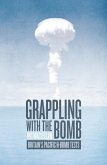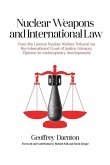On July 16, 1945, the United States set off the world's first atomic explosion. In his "Atoms for Peace" speech of 1953, President Dwight D. Eisenhower captured the tensions -- and the ironies -- of the atomic age. While nuclear devastation threatened all nations, Eisenhower believed only nuclear preparedness offered protection; while nuclear weapons loomed as the ultimate war cloud, nuclear power offered progress and hope. In this consideration of Eisenhower's speech and others leading up to it, Ira Chernus views the "Atoms for Peace" speech, presented to the General Assembly of the United Nations, not merely as a legitimation of American foreign policy but as itself an act of policy. Indeed, he frames the policy in a new interpretation of Eisenhower's broad discursive goal, which he calls "apocalypse management, " a plan to allow the United States to manage threats and crises around the world. The full text of Eisenhower's speech is presented in this volume. Chernus sheds new light on the internal consistency of Eisenhower's thought, which many observers have found inconsistent, as well as on the ways in which the president's rhetoric backed him into a policy corner he had not intended to occupy. Chernus also reviews the domestic impact of the speech through a detailed examination of media interpretations in the United States. This tightly reasoned, clearly written study offers a new understanding of the evolution of Cold War nuclear policy, the power of presidential rhetoric, and the political understanding of America's "man of peace, " Dwight D. Eisenhower.
Hinweis: Dieser Artikel kann nur an eine deutsche Lieferadresse ausgeliefert werden.
Hinweis: Dieser Artikel kann nur an eine deutsche Lieferadresse ausgeliefert werden.








